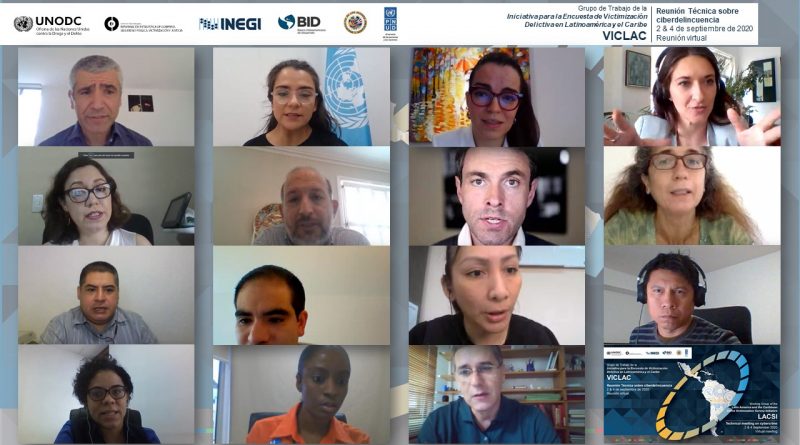UNODC promotes the measurement of cybercrime through household surveys
Mexico City – On September 2 and 4, the UNODC-INEGI Center of Excellence (CoE) organized the virtual Technical Meeting on Cybercrime as part of the Latin America and the Caribbean Crime Victimization Survey Initiative (LACSI).
This specialized meeting was organized to understand, within the VICLAC Initiative, the global, regional and national conceptual and normative panorama of cybercrime with the aim of defining which behaviors are minimally recommended to measure, and thus improve the cybercrime module. The meeting was attended by representatives from 5 countries of the National Statistical Offices and the Criminal Justice System (Argentina, Colombia, Mexico, Peru, Dominican Republic and Saint Lucia), from 3 United Nations bodies (ECLAC, UNDP and UNODC – HQ and ROPAN), from 2 regional organizations (IADB, OAS), as well as by 2 international experts (Cybercrime Research Institute and Univeristat Abat Oliba CEU).
This module has already been successfully applied in Saint Lucia, the last country to adopt the LACSI Initiative, which measures 5 specific behaviors (cyberbullying, malware, social media hacking, email hacking and ransomware). During the specialized technical meeting, it was agreed to include the measurement of impersonation, identity theft and sextortion.
Being able to consolidate the module on cybercrime means giving the countries of the region the opportunity to measure cybercrime with a tool aligned with international standards. Crucial element, considering the primary need to guarantee digital security due to the enormous expansion in the use of information and communication technologies in the region in recent years, in addition to the acceleration in the number of internet users that the COVID-19 pandemic has pushed.
In addition, the development of this module is part of the update of the Roadmap for the improvement of crime statistics (E / CN.3 / 2019/19). With this module, UNODC is positioned as a promoter of the measurement of cybercrime through national surveys in households, especially those of victimization, thus complementing the actions that are being carried out through the UNODC Global Program on Cybercrime, which provides technical assistance to prevent and combat this crime through capacity building, cooperation schemes, support for the development of a legal framework and prevention strategies.



